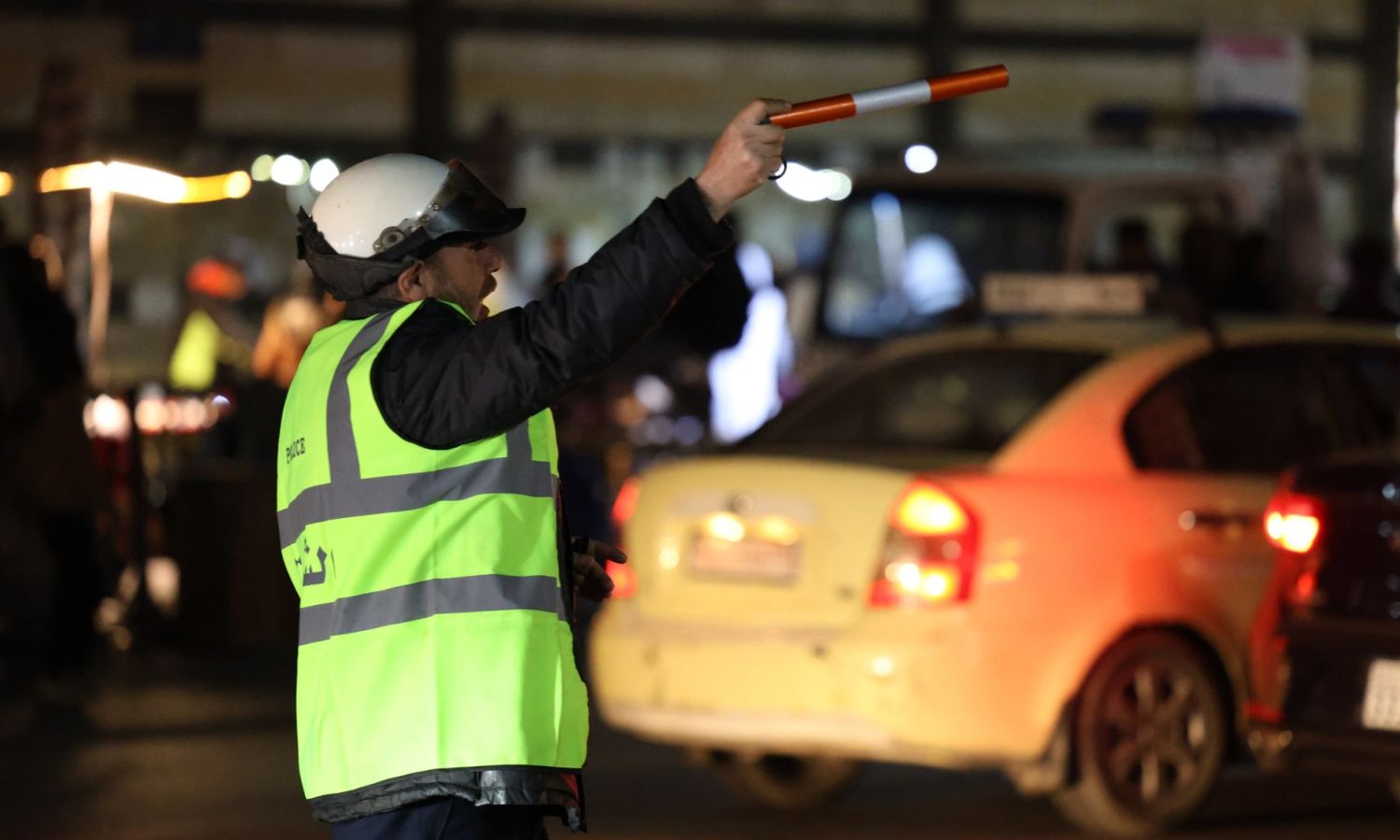Activists on social media have expressed their relief over the return of traffic police officers officially and intensively to the streets of Damascus this March, to regulate traffic and alleviate congestion.
The streets of Damascus have witnessed a severe traffic crisis since the fall of the Assad regime, resulting from many drivers violating traffic laws, changing public bus routes without approvals, and parking in prohibited areas, alongside a lack of police presence to manage traffic and a general sense of impunity among drivers.
Enab Baladi contacted the Syrian Interior Ministry to learn about the main measures being taken to organize public traffic in Syrian provinces, and whether there are any changes to the laws that were previously in force.
Plans and priorities of the Interior Ministry
Shadi al-Youssef, Assistant Minister of Interior in the interim Damascus government, confirmed in a statement to Enab Baladi that all laws previously in effect at the Ministry of Interior are being studied by a specialized team for development to align with public interest, including traffic laws. He clarified that while no legal changes may occur, an investigation is underway to find better regulations and laws that facilitate public movement.
Al-Youssef pointed out that the reactivation of 200 traffic policemen is the first action plan in the capital, Damascus. Based on the data, a further study will be conducted to activate additional numbers in the capital and other provinces.
A selection of former traffic police staff has been made, interviews conducted, and strict instructions given on the necessity of adhering to public order, properly interacting with citizens, and managing their affairs.
The ministry has allocated “number 115” for direct communication regarding urgent cases, and direct communication with the public is now being enhanced through the substantial presence of traffic police in the streets.
The ministry’s primary goal is to adequately compensate its workers financially, to help reduce the phenomenon of corruption and bribery that has plagued the traffic sector in the past.
Al-Youssef also mentioned that the ministry will take very strict measures in the event of any violations by traffic officers, which could lead to dismissal or termination from service.
The ministry has a plan to equip police and security forces with modern tools to help enforce traffic violations and more, according to al-Youssef, which will contribute to better facilitating citizens’ affairs.
Additionally, a complete plan is being prepared to restore damage to traffic equipment, and repairs will be carried out soon to bring them back into operation as quickly as possible.
Al-Youssef explained that the offices of the traffic branch and its vehicles and equipment have suffered significant damage, with no precise assessment of the extent of the damage yet. Efforts are currently underway to restore damage and deficiencies after recovering previous equipment and returning it from personnel who had settled their situations.
On March 20 of this month, Assistant Minister Shadi al-Youssef, along with the Head of Police in Damascus and the Head of the Traffic Branch, conducted a field tour of traffic police patrols in the city of Damascus to assess the workflow, evaluate performance, and ensure their readiness to organize traffic and improve traffic conditions.
Nobody wants to be a traffic policeman
In early February, traffic police officer defectee Amer al-Khader told Enab Baladi, “I work here alone,” following his return to work at the Victoria Bridge intersection.
According to al-Khader, the police officers deployed then in the streets of Damascus covered only about 5% of the neighborhoods in the capital, hence they are concentrated in the most congested areas.
The Syrian Interior Ministry has deployed around 400 officers to control traffic chaos in Damascus, but none of them have shown up for work, as most of the police volunteers prefer to work in public security management or police stations, with no one wanting to work as a traffic officer, according to al-Khader.
In the days following the fall of the Assad regime, residents participated in organizing traffic due to the lack of traffic police in the cities.
Volunteer youth teams emerged for this purpose, receiving training through intensive courses in traffic management under the supervision of the new administration, which provided them with equipment in collaboration with the Sened organization.
The ministry is working to address the shortage in manpower, with several groups of police college students graduating in the province of Damascus, the latest of which was on March 23 of this month.
Damascus: What plans does Interior Ministry have for traffic organization? Enab Baladi.
Read More Details
Finally We wish PressBee provided you with enough information of ( Damascus: What plans does Interior Ministry have for traffic organization? )
Also on site :
- Iconic '90s Actress, 55, Flaunts ‘Agelessly Sexy Beauty’ in Itty-Bitty String Bikini
- Legendary '60s Rock Band Drops New Album — But Fans Still Flock to Old Classic
- Uber Eats rival introduces new delivery service in copycat move to Walmart – 100,000 people to get their orders quicker

